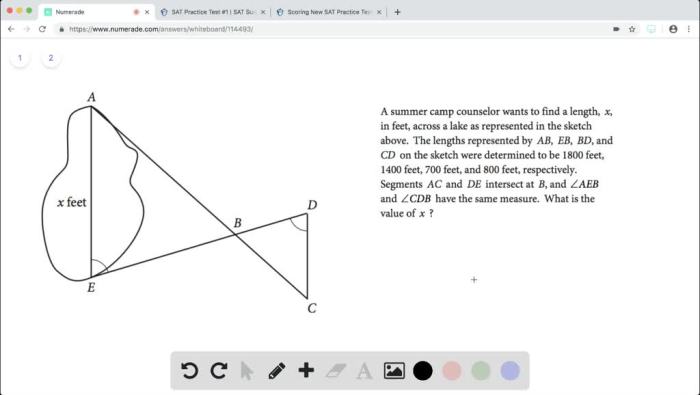A summer camp counselor wants to find a length – Determining the appropriate length for summer camp counselors is crucial for ensuring the safety, well-being, and overall success of a camp program. This comprehensive guide explores the factors influencing counselor length, methods for determining the ideal duration, and legal and financial considerations.
By understanding the intricacies of camp counselor length, camp directors can optimize their operations and provide a rewarding experience for both counselors and campers.
Understanding the Context of Camp Counselor’s Length Requirements

Determining an appropriate length for camp counselors is crucial for ensuring the safety, well-being, and overall success of the camp program. Length requirements vary based on factors such as the age group of campers, the type of camp program, and the duration of the camp.
Understanding these factors helps camp administrators establish reasonable and effective length guidelines.
Factors Influencing Length Requirements
- Age Group:Younger campers typically require shorter length to maintain supervision and care. As campers get older, they can handle longer length with increased independence.
- Program Type:Adventure camps or wilderness expeditions often require longer length for safety and risk management purposes.
- Camp Duration:The length of the camp program also influences counselor length. Longer camps necessitate longer length to provide consistent supervision and support.
Methods for Determining Camp Counselor Length: A Summer Camp Counselor Wants To Find A Length

Various methods can be used to determine the ideal length for camp counselors. Common approaches include:
Formulas or Guidelines, A summer camp counselor wants to find a length
Industry-specific formulas or guidelines provide a standardized approach to calculating length. For example, the American Camp Association recommends a 1:8 ratio of counselors to campers for general day camps.
Data Analysis
Analyzing historical data on counselor length and camper outcomes can help identify optimal length. Factors such as camper satisfaction, incident rates, and counselor retention can be used to determine effective length.
Benchmarking
Comparing length requirements with other similar camps or programs can provide valuable insights. Benchmarking allows camp administrators to identify best practices and adjust their own length guidelines accordingly.
Considerations for Different Camp Counselor Roles

Within camp counseling, different roles may have varying length requirements. These roles include:
Junior Counselors
Junior counselors, typically in training, may have shorter length to focus on observation and skill development.
Assistant Counselors
Assistant counselors support lead counselors and may have moderate length to provide assistance and supervision.
Lead Counselors
Lead counselors hold primary responsibility for a group of campers and require longer length to ensure safety, guidance, and program implementation.
Specialty Counselors
Specialty counselors, such as those for arts or sports, may have length that aligns with the specific program they lead.
Legal and Safety Implications of Camp Counselor Length
Legal and safety considerations play a significant role in determining camp counselor length.
Counselor-to-Camper Ratios
Regulations or guidelines often govern counselor-to-camper ratios to ensure adequate supervision and safety. These ratios may vary depending on the age group, program type, and camp location.
Best Practices
Best practices for ensuring camper safety include maintaining a sufficient number of counselors to provide appropriate supervision and response to emergencies.
Risk Management
Adequate length helps mitigate risks by ensuring that counselors are present and alert to respond to camper needs and potential hazards.
Q&A
What are the key factors to consider when determining camp counselor length?
Age group, program type, camp duration, counselor responsibilities, and legal regulations.
How can data analysis support length determination?
By analyzing historical data on camper-to-counselor ratios, incident rates, and counselor satisfaction.
What are the legal and safety implications of camp counselor length?
Regulations may govern counselor-to-camper ratios to ensure camper safety and well-being.